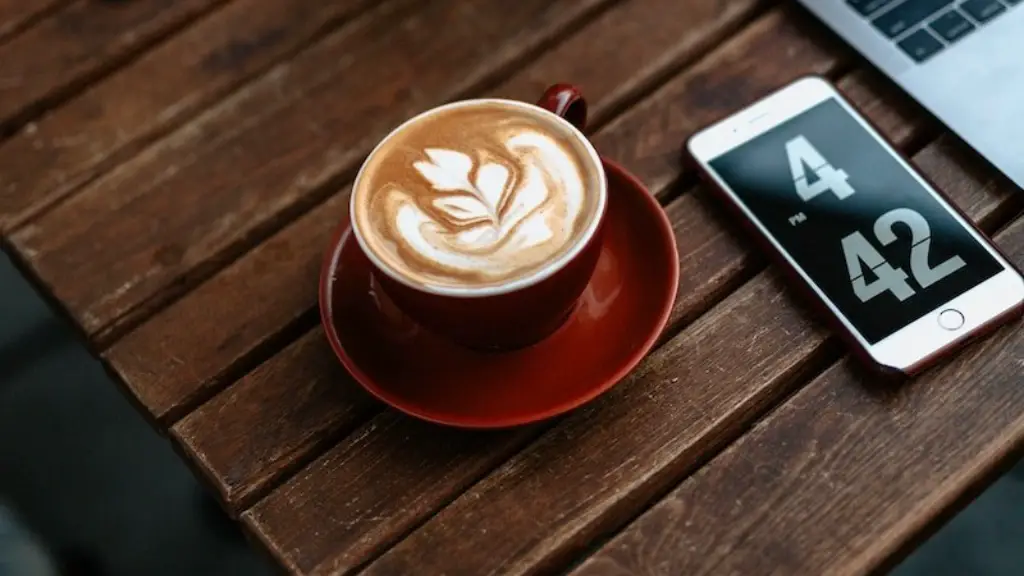As with anything that can be enjoyed in moderation, caffeine consumption can easily become an addiction and have negative repercussions. Coffee consumption is much higher than ever before and with the rise of energy drinks and other caffeine-rich beverages, it is becoming increasingly important to understand the effects of excessive consumption. Caffeine is often thought to be a stimulant, allowing us to perform better and be more alert; however, the fact is that when consumed in large amounts it can backfire, impacting our sleep schedule, metabolism, and even our mood.
Many people might think that drinking too much coffee will make them more fatigued simply because of the large amount of the substance that their body is having to process. However, the real cause of our energy levels dropping due to excessive amounts of caffeine is due to a decrease in our natural dopamine levels. Dopamine is a neurotransmitter that helps regulate our sleep and wake cycle, so when dopamine levels are lowered, we become more tired and fatigued throughout the day.
In addition, caffeine is also known to be a diuretic. This means that it can increase the amount of water that passes out of our bodies, resulting in dehydration, which can lead to fatigue and headaches. As the effects of excessive coffee intake build up, drink coffee and other beverages come with a whole host of other symptoms: concentration issues, irregular heart rate and feeling anxious.
Overall, it is important to have a healthy and balanced attitude towards coffee consumption. There is no one-size-fits-all answer as to how much coffee is safe to drink as every individual is different. However, the general rule of thumb is to keep coffee intake to under four cups a day. If you are feeling unusually sleepy despite drinking coffee, it may be best to cut down your intake to one or two cups a day.
Caffeine Tolerance
On the other hand, another important factor to consider when discussing caffeine and fatigue is the concept of caffeine tolerance. Just like with any other drug, the more caffeine we consume, the more tolerant we become to its effects. This can lead to people “needing” large amounts of coffee to feel energized and alert, when in fact, it could be the coffee intake itself that is contributing to their fatigue.
Caffeine tolerance is a result of our body adjusting to high levels of the drug, lowering our natural levels of dopamine and adrenaline as it compensates for the artificial stimulant. This can lead to “coffee crashes” where despite having drunk large amounts of coffee we can still feel tired and lethargic. Those with a high tolerance to caffeine will find that they need to drink more and more to feel the same buzz they did when they first began drinking coffee.
It is important to remain mindful of your caffeine intake and to even cut back or eliminate it should you feel like you are becoming too reliant on it. Start by drinking less in the morning and evening and drink decaf or other natural beverages instead. Cutting back will also help your body to adjust to lower tolerance levels, leading to enhanced alertness and higher quality sleep overall.
Physical Exercise
Exercising is also a great way to avoid excessive coffee consumption and can actually help us to feel more energetic and alert. By doing regular physical activity, we allow our body to produce more dopamine, which can combat the drop in levels caused by the caffeine we consume. Exercise releases endorphins, the happy hormones, into our bodies, which can help to boost our energy and mood levels throughout the day.
Regular exercise also has the benefit of helping our bodies achieve a better state of balance. This means that even if we do drink excess coffee, our body can still help us to remain energised and alert. To achieve this, aim to fit in twenty minutes of exercise each day. This can be a quick run or a workout on one of the exercise machines at the gym. You can also look into taking up new sports or joining workout classes. Regardless, exercise will help to keep your body and mind fulfilled and re-energised.
Alongside physical activity, it is important to make sure that you are getting enough sleep and eating healthily. All three have a huge influence on our energy levels, so try to stick to a regular sleeping and eating pattern. Eating healthily and cutting out excessive amounts of sugar and processed foods can help to reduce anxiety and create a more balanced mood overall.
Restricting Caffeine Intake
Restricting caffeine intake can also help to reduce fatigue, as it will stop our dopamine levels from dropping in the way that it does with prolonged caffeine consumption. To do this, try to limit your caffeine intake to two to three cups per day, and try to drink decaf if possible in the evenings. You should also stay away from energy drinks, as these can contain even more caffeine than coffee and can often contain a number of artificial additives.
It is also important to note that caffeine is not the only way to keep us alert and energised. Many people often forget the value of natural and mindful actions, such as morning walks or meditating. Taking a few minutes each day to just relax and be mindful of the present moment can help us to stay energised and alert throughout the day, without the need for massive amounts of caffeine.
Finally, when it comes to drinking coffee, it is important to focus on the quality rather than the quantity. There are many ways to make a great cup of coffee, such as grinding the beans yourself or getting the best quality beans from a coffee farm. Quality coffee will provide the perfect pick me up and can be enjoyed with the knowledge that you are not consuming too much caffeine.
Effects of Consumption on Mental Health
An often forgotten aspect of coffee drinking is the impact it can have on our mental health. Keeping caffeine levels balanced is as important for mental health as it is for physical health, and too much coffee can have a negative effect on our mood. Excess caffeine can lead to irritability and mood swings, as well as restlessness and difficulty sleeping.
In general, too much coffee can lead to feelings of anxiousness, making it difficult to concentrate on tasks or to even relax. Mental health is an increasingly important aspect of life and keeping our caffeine levels balanced can help us to stay emotionally healthy and alert. If you are feeling particularly down, consider drinking decaf or other natural beverages to give your body the break it needs.
Long-Term Effects
It is also important to consider the effects of long-term coffee intake on our physical and mental health. Over time, drinking too much coffee can lead to elevated cholesterol levels, high blood pressure, and even heart disease. It can also have an impact on our digestive system and our ability to absorb nutrients.
Regular coffee consumption can also cause us to become desensitised to its effects, meaning that we require an even higher intake to hit the same buzz that once made us feel energised. Too much coffee can also lead to mood swings, resulting in feelings of depression and other mental health issues.
Overall, the main takeaway here is to drink coffee in moderation and to balance it out with regular exercise and healthy eating. Make sure to get enough rest and be mindful of your caffeine intake, as too much can lead to a variety of negative impacts on both your physical and mental health.
Changes In Brain Chemistry
Changes in brain chemistry can also occur with excess caffeine usage. Our brain releases dopamine when we consume caffeine, which is a neurotransmitter that controls how awake and energised we feel. However, if we drink too much coffee, our dopamine levels can become imbalanced, leading to fatigue and even headaches.
When this imbalance occurs, it can take many days for our bodies to readjust to the normal level of dopamine release, leading to further fatigue and a lack of energy. To avoid this, try to stick to one or two cups of coffee a day and pay attention to how your body is responding. If you do find yourself feeling tired after your morning cup of joe, it might be best to switch to decaf or to try other caffeine alternatives.
It is also important to note that caffeine consumption can affect your productivity levels. Many of us rely on coffee to get us through our day but it is important to remember that caffeine is not a long-term energy solution. Too much of it can lead to energy crashes and a lack of focus, leading to less efficient work.
Managing Caffeine Intake
It is important to manage our caffeine consumption in order to avoid the adverse effects of excessive consumption. Regularly monitoring our intake and understanding when to cut down or replace our daily caffeine fixes can help to keep us alert and energised without sacrificing our health.
If you feel like you can’t go a day without a cup of coffee, try to reduce gradually. It might be best to switch to decaf or switch to a green tea for a few days until your body has had time to readjust its dopamine levels. You should also pay attention to your drinking habits and if you find yourself drinking multiple cups of coffee a day it might be best to cut down or switch to alternatives like herbal teas.
Overall, excessive coffee consumption can lead to a variety of health problems, from fatigue and headaches to anxiety and depression. It is important to be aware of our daily habits and to replace or cut down our coffee intake should we start to feel symptoms of fatigue or mood swings. A balanced and healthy diet, combined with regular exercise and good sleeping habits, can help us to feel energised and alert without the need for excessive caffeine use.




